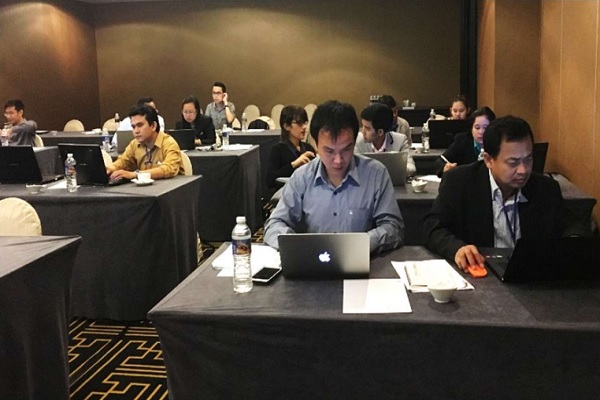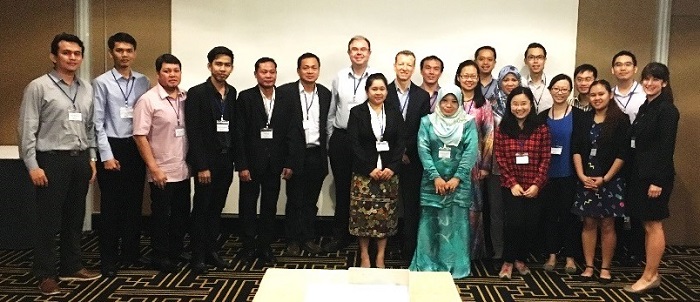08 MAR 2017
S2S, Long-range Forecasting
Recap of the 1st Workshop on Subseasonal to Seasonal Prediction for Southeast Asia (S2S-SEA I)

Exploring the potential of subseasonal predictions for Southeast Asia
Objectives
A 5-day workshop on Subseasonal to Seasonal Prediction for Southeast Asia (S2S-SEA I) was conducted in Singapore from 27 February to 2 March 2017. This workshop was organised by the Meteorological Service Singapore (MSS) as host of the ASEAN Specialised Meteorological and supported by World Meteorological Organization’s (WMO) Subseasonal to Seasonal Prediction (S2S) Project. The workshop is part of the multi-year S2S-SEA Capability Building Programme proposed by ASMC to enhance regional capacity and collaboration in this area among the National Meteorological and Hydrological Services (NMHSs). S2S prediction, which provides forecasts on the timescale of 2 weeks to 2 months, has potential applications in water resources, disaster risk reduction, health and agriculture as these often involve decisions that require lead-times in the S2S time range.
Participation
All 10 NMHSs of Southeast Asia were represented, with three countries extending funds for additional participants from their own organisations to attend the workshop. Experts from S2S Prediction Project, co-chairs Dr. Andrew Robertson (IRI) and Dr. Frederic Vitart (ECMWF), were invited as lecturers. A local expert on S2S processes, Dr. Koh Tieh Yong (UniSIM), and a representative from ASMC, Mr. Christopher Gan were also invited to deliver scientific and application lectures respectively. This workshop was co-funded by MSS and WMO.
Activities
A series of lectures were delivered by the invited experts touching on the topics of S2S predictability, model access, verification methods, and applications. Practical exercises based on Python codes were also conducted to assess the skill of the S2S models, in particular that of ECMWF, for predictions up to 4 weeks lead time and also to investigate its ability to predict specific weather events of interests. The Python codes are made available at https://github.com/S2S-SEA/workshop1/tree/master/code. The participants also made use of the IRI data library: both an online tool and repository for many atmospheric products. The ECMWF model was found to be skilful in predicting temperature and rainfall up to 2 weeks ahead, with some residual skill in the third and fourth week depending on the season and location. The model also showed potential in predicting large-scale events but with deviations in spatial representation and magnitude. Details and materials of the workshop can be found here: https://github.com/S2S-SEA/workshop1/wiki. At the end of the workshop, participants gave feedback that the workshop activities were useful and would recommend their colleagues to attend future activities of S2S-SEA.
Acknowledgement“The workshop is very useful to me especially in learning and understanding the programming language used and how to make use of the data for the verification using data sources provided…” – Participant Feedback
MSS would like to thank WMO for their support and for providing the funds for the participation of the experts at the workshop. MSS also would like to express its appreciation to Dr. Robertson and Dr. Vitart for their guidance and contributions and also to all the participants for their active participation and constructive feedback.
Local Organising Committee
Mr. Raizan Rahmat
Dr. Thea Turkington
Ms. Liu Jia
Ms. Yap Hoon Fang
Ms. Krysania Tan Back